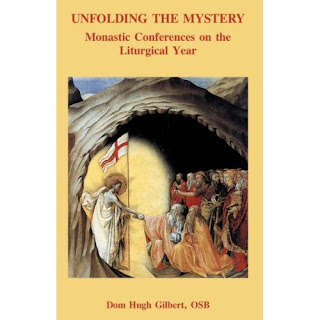Dr Edward Peters, Edmund Cardinal Szoka Professor of Canon Law at Sacred Heart Major Seminary, Detroit, Referendary of the Apostolic Signatura and author of
In the Light of the Law suggests that the crime of solicitation could be more widespread in the Church than might be supposed. His study of Canon 1387 can be read in the current issue of the
Homiletic and Pastoral Review. (If you are reading this some time after the current issue is no longer current, you may need to click the Older Articles link.)
Canon 1387 states:
A priest who in the act, on the occasion, or under the pretext of confession solicits a penitent to sin against the sixth commandment of the Decalogue is to be punished, according to the gravity of the delict, by suspension, prohibitions, and privations; in graver cases he is to be dismissed from the clerical state.
This canon includes not only the solicitation of a female to commit a sexual act with the confessor himself, but involves any sin against the sixth commandment, whether it be a sin committed together by confessor and penitent (regardless of sex or age), or by the penitent with another, or by the penitent alone.
Dr Peters quotes some Canonical authors:
Solicitation exists if the confessor sinfully suggests that the person commit impure acts alone or with others, for example, counsels the use of contraceptives. (Patrick Lydon, Ready Answers in Canon Law (1937), 483)
Indeed, the delict is committed even by wrong advice as to the sinfulness of evil thoughts. (Abbo-Hannan, Sacred Canons (1960) II: 30)
Peters contends:
There seems to be no doubt that a confessor’s advice toward immoral activity in sexual matters, whether it concerns acts to be performed by the penitent alone [e.g. self-abuse or the use of pornography - my addition], with a third party, or with the confessor himself, constitutes solicitation in confession and hence is a very serious crime under modern canon law.
Peters then studies the canonical procedures to be followed in the prosecution of a case of an alleged crime of solicitation. Most canonical crimes are adjudicated at diocesan level. Only a small number of crimes are reserved to the Holy See in the light of their particular gravity. Only if the confessor has solicited a penitent to
sin against the sixth commandment with himself is it reserved to the Apostolic See in accordance with norms issued in 2001. This is not to belittle other crimes but to acknowledge the dignity of local Churches as having within themselves in the person of the Bishop full judicial power over that Church. The reservation to the Holy See occurs, among other reasons, because of the wider consequences of a particular crime for the Universal Church or because of the particular expertise/resources that may be needed which a local Church may not possess.
As a confessor, I find this article very helpful in affirming in me the importance of being very clear with penitents. The penitent must never be allowed to think that the confessor has said "contraception is alright" or that "it's up to your conscience", or that illicit relationship (e.g. an irregular "marital" union) can be tolerated and expressed sexually. This would be to solicit the penitent in a sin against the sixth commandment. I don't want to be anywhere near that position.
I have, regrettably, come across Catholics who have responded to my teaching against contraception or homosexual relations or illicit unions by saying that another priest, whether during or outside Confession, has left them with the impression that it was alright. I am sure I am not alone.
The existence of penalties in the Church serves a number of purposes. One is to punish after a crime has been committed. Another is to warn anyone who might be tempted that there are consequences in committing a crime. The weak need these warnings. A further purpose is to affirm the true doctrine of the Church and to encourage fidelity. The Church is truly a mother in this manner and seeks to be a true
Mirror of Justice.
If you have read this far, do
read Dr Peters' article.



























